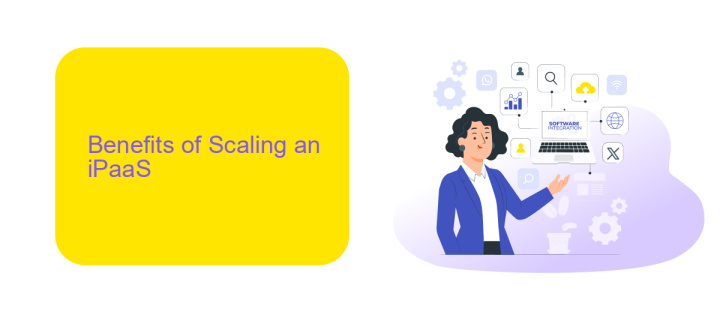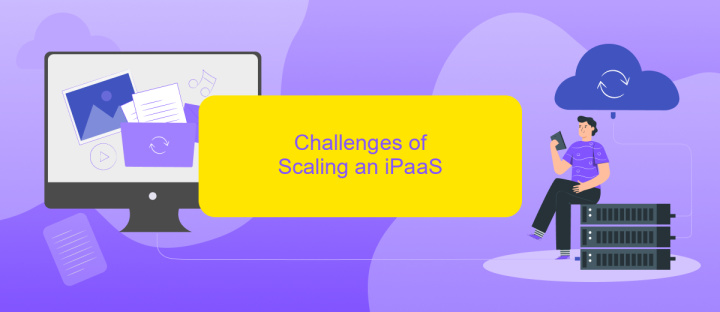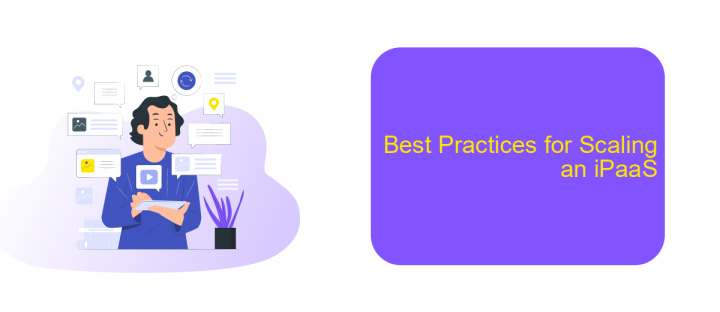Scaling an iPaaS
Scaling an Integration Platform as a Service (iPaaS) is a critical step for businesses aiming to enhance their digital ecosystems. As companies grow, the demand for seamless data integration across various applications and services becomes paramount. This article explores the key strategies and best practices for effectively scaling an iPaaS solution to ensure robust performance, reliability, and flexibility in an increasingly interconnected world.
Introduction
As businesses grow and evolve, the need for seamless integration between various applications and services becomes increasingly critical. An Integration Platform as a Service (iPaaS) offers a scalable solution to this challenge by providing a cloud-based platform for integrating disparate systems. Scaling an iPaaS involves enhancing its capacity to handle increased data volumes, more complex workflows, and a larger number of integrations without compromising performance or reliability.
- Enhanced data processing capabilities
- Improved workflow automation
- Increased number of supported integrations
- Optimized system performance
One of the tools that facilitate the scaling of iPaaS is ApiX-Drive. This service allows for easy setup and management of integrations, making it simpler for businesses to connect their applications and automate workflows. By leveraging such tools, organizations can ensure that their iPaaS scales effectively to meet growing demands, thereby maintaining operational efficiency and fostering innovation.
Benefits of Scaling an iPaaS

Scaling an iPaaS (Integration Platform as a Service) offers numerous benefits for businesses looking to enhance their integration capabilities. One of the primary advantages is the ability to handle increased data volumes and complex workflows seamlessly. As organizations grow, the need for efficient data transfer and real-time processing becomes critical. A scalable iPaaS ensures that businesses can maintain high performance and reliability, even as their integration requirements expand. This leads to improved operational efficiency and better decision-making, as all data streams are consistently managed and synchronized.
Another significant benefit is the flexibility to integrate a wide range of applications and services without extensive manual intervention. Tools like ApiX-Drive facilitate this process by providing pre-built connectors and easy-to-use interfaces, allowing businesses to set up and manage integrations quickly. This reduces the time and resources needed for custom development and ongoing maintenance. Moreover, a scalable iPaaS can adapt to changing business needs, supporting new applications and technologies as they emerge. This adaptability ensures that companies remain agile and competitive in a rapidly evolving digital landscape.
Challenges of Scaling an iPaaS

Scaling an iPaaS (Integration Platform as a Service) presents numerous challenges that organizations must address to ensure seamless operations and growth. As the number of integrations and data flows increases, maintaining performance and reliability becomes a critical concern.
- Complexity Management: As integrations grow, the complexity of managing them increases. Ensuring that all systems communicate effectively without conflicts is crucial.
- Data Security: Protecting sensitive data during transfers and integrations is paramount. Implementing robust security measures is essential to prevent breaches.
- Scalability: The platform must be able to handle increased loads without degrading performance. This requires efficient resource management and load balancing.
- Monitoring and Maintenance: Continuous monitoring of integrations and timely maintenance are necessary to avoid disruptions. Automated tools like ApiX-Drive can simplify this process by providing real-time monitoring and alerts.
- Cost Management: Scaling can lead to increased costs. Organizations need to optimize their integration processes to ensure cost-effectiveness.
To effectively scale an iPaaS, organizations should adopt a strategic approach that includes leveraging automation tools like ApiX-Drive, which can streamline integration processes and enhance scalability. By addressing these challenges proactively, businesses can ensure their iPaaS remains robust and efficient as they grow.
Best Practices for Scaling an iPaaS

Scaling an iPaaS (Integration Platform as a Service) effectively requires a strategic approach to ensure seamless performance and reliability. One of the fundamental practices is to implement robust monitoring and alerting systems. These systems help in identifying bottlenecks and potential failures before they impact the business operations.
Another critical aspect is to prioritize data security and compliance. As the scale increases, the volume of data being processed and transferred grows, making it imperative to have stringent security measures in place. Regular audits and compliance checks are essential to maintain data integrity and trust.
- Optimize API usage to handle increased traffic efficiently.
- Leverage scalable cloud infrastructure to accommodate growth.
- Utilize services like ApiX-Drive for seamless integration management.
- Implement automated testing to ensure the reliability of integrations.
Lastly, fostering a culture of continuous improvement is vital. Encourage teams to regularly review and refine integration processes. By adopting these best practices, businesses can ensure their iPaaS scales effectively, maintaining high performance and reliability.
Tools and Technologies for Scaling an iPaaS
Scaling an iPaaS requires a robust set of tools and technologies to ensure seamless integration and efficient data flow. Key technologies include API management platforms, which facilitate the creation, deployment, and monitoring of APIs. Tools like ApiX-Drive help automate and streamline the integration process, allowing businesses to connect various applications without extensive coding. Additionally, cloud-based services provide the flexibility and scalability needed to handle increasing data volumes and integration complexity.
Moreover, message queuing systems like Apache Kafka and RabbitMQ are essential for managing data streams and ensuring reliable communication between different systems. Monitoring and analytics tools, such as Datadog and Splunk, are crucial for tracking performance and identifying potential bottlenecks. Implementing these technologies not only enhances the scalability of an iPaaS but also ensures high availability and resilience, enabling businesses to adapt quickly to changing demands and maintain seamless operations.


FAQ
What is iPaaS and why is scaling it important?
How can I ensure my iPaaS scales effectively with my business growth?
What are the common challenges faced when scaling an iPaaS?
How can automated integrations help in scaling an iPaaS?
What role does monitoring play in scaling an iPaaS?
Routine tasks take a lot of time from employees? Do they burn out, do not have enough working day for the main duties and important things? Do you understand that the only way out of this situation in modern realities is automation? Try Apix-Drive for free and make sure that the online connector in 5 minutes of setting up integration will remove a significant part of the routine from your life and free up time for you and your employees.

